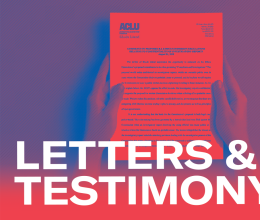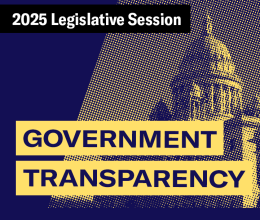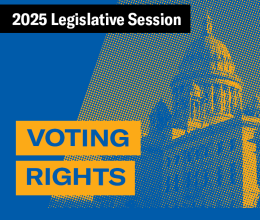Coming on the heels of false allegations by President Trump of widespread voter fraud, the ACLU of Rhode Island today issued a report indicating that some lawful voters were turned away from the polls in November due to the state’s controversial voter ID law. The report documented a number of other concerns based on observations from a few dozen ACLU volunteer poll monitors during the 2016 general election. The findings generally mirror those contained in a report the ACLU issued after the 2012 Presidential election.
While acknowledging that polling in most locations went smoothly, the report details problems in some locations caused by the state’s voter ID law, polling place location confusion, and various technical issues, creating some frustrated – and, in a few instances, disenfranchised – voters.
2016 was the first Presidential election year where photo ID was required to vote. The law requires that any person failing to present an authorized ID must be offered a provisional ballot. Nevertheless, in at least two polling locations, ACLU poll monitors found that voters without proper ID were summarily turned away by poll workers, preventing them from exercising their right to vote.
This past election was also the first in which new voting machines were used. While some technical difficulties were to be expected with the use of new technology in a large election, some issues went far beyond simple glitches. In Pawtucket, the city’s three-page ballot led to major malfunctions with the machines, and a shortage of equipment created frustration, chaos and very long lines.
Based on the poll monitors’ findings, the ACLU report outlines specific recommendations regarding best practices for public policy changes, such as:
• Repealing the Voter ID law
• Changing the practices around provisional ballots and how they are determined to be counted partially or in full
• Increasing the number of polling locations, technicians, and scanners.
• Expanding and promoting early voting; and
• Establishing an auditing and manual recount process
The report concluded: “[A]s a state and a nation we must continue to protect everyone’s right to vote. Rhode Island has taken some steps in the past years to do this, but more can and should be done. It is important that we acknowledge the deficiencies so that they may be properly addressed for the next election cycle.”




